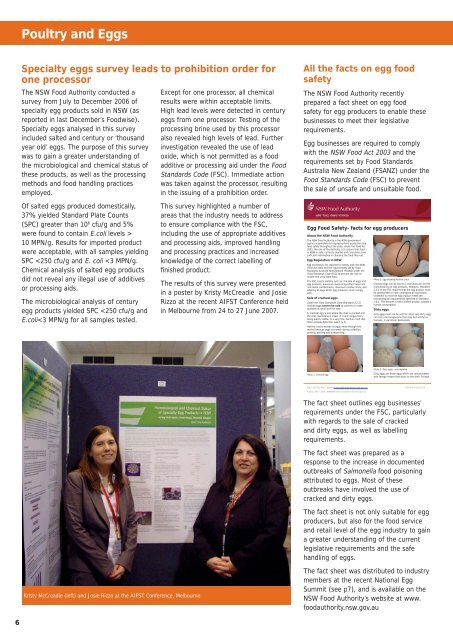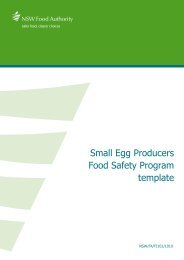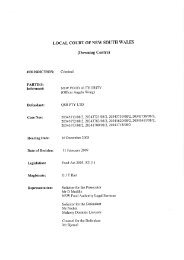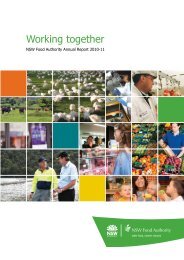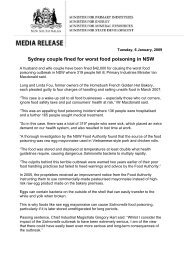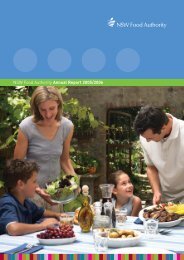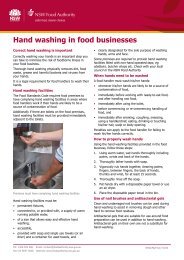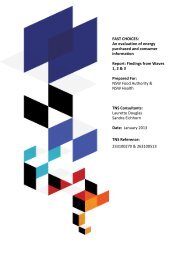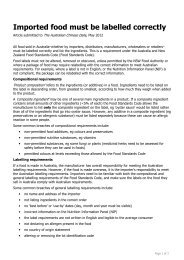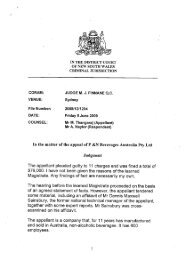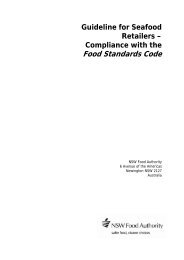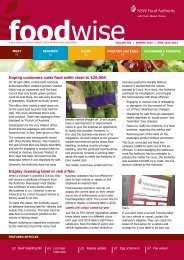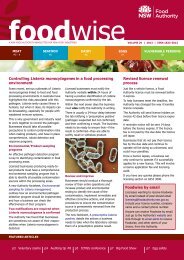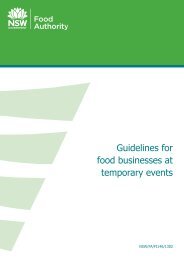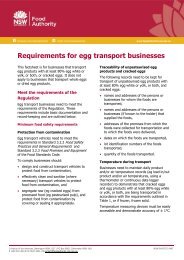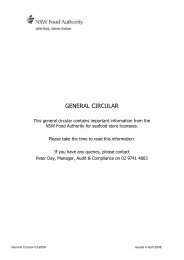Newsletter | Foodwise volume 8 Spring - NSW Food Authority
Newsletter | Foodwise volume 8 Spring - NSW Food Authority
Newsletter | Foodwise volume 8 Spring - NSW Food Authority
You also want an ePaper? Increase the reach of your titles
YUMPU automatically turns print PDFs into web optimized ePapers that Google loves.
Poultry and Eggs<br />
Specialty eggs survey leads to prohibition order for<br />
one processor<br />
The <strong>NSW</strong> <strong>Food</strong> <strong>Authority</strong> conducted a<br />
survey from July to December 2006 of<br />
specialty egg products sold in <strong>NSW</strong> (as<br />
reported in last December’s <strong><strong>Food</strong>wise</strong>).<br />
Specialty eggs analysed in this survey<br />
included salted and century or ‘thousand<br />
year old’ eggs. The purpose of this survey<br />
was to gain a greater understanding of<br />
the microbiological and chemical status of<br />
these products, as well as the processing<br />
methods and food handling practices<br />
employed.<br />
Except for one processor, all chemical<br />
results were within acceptable limits.<br />
High lead levels were detected in century<br />
eggs from one processor. Testing of the<br />
processing brine used by this processor<br />
also revealed high levels of lead. Further<br />
investigation revealed the use of lead<br />
oxide, which is not permitted as a food<br />
additive or processing aid under the <strong>Food</strong><br />
Standards Code (FSC). Immediate action<br />
was taken against the processor, resulting<br />
in the issuing of a prohibition order.<br />
All the facts on egg food<br />
safety<br />
The <strong>NSW</strong> <strong>Food</strong> <strong>Authority</strong> recently<br />
prepared a fact sheet on egg food<br />
safety for egg producers to enable these<br />
businesses to meet their legislative<br />
requirements.<br />
Egg businesses are required to comply<br />
with the <strong>NSW</strong> <strong>Food</strong> Act 2003 and the<br />
requirements set by <strong>Food</strong> Standards<br />
Australia New Zealand (FSANZ) under the<br />
<strong>Food</strong> Standards Code (FSC) to prevent<br />
the sale of unsafe and unsuitable food.<br />
Of salted eggs produced domestically,<br />
37% yielded Standard Plate Counts<br />
(SPC) greater than 10 6 cfu/g and 5%<br />
were found to contain E.coli levels ><br />
10 MPN/g. Results for imported product<br />
were acceptable, with all samples yielding<br />
SPC


